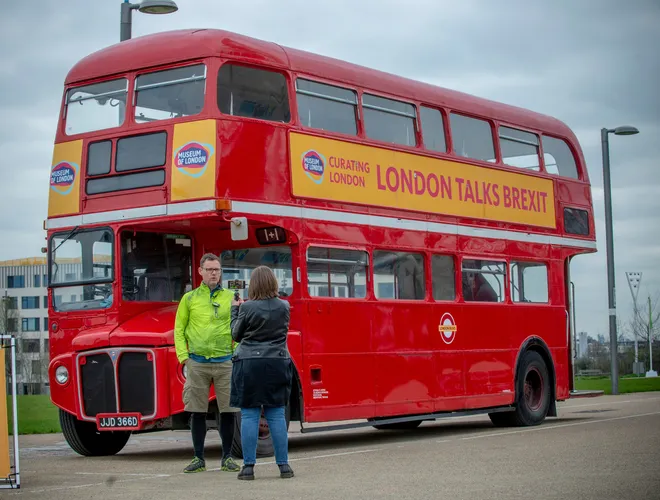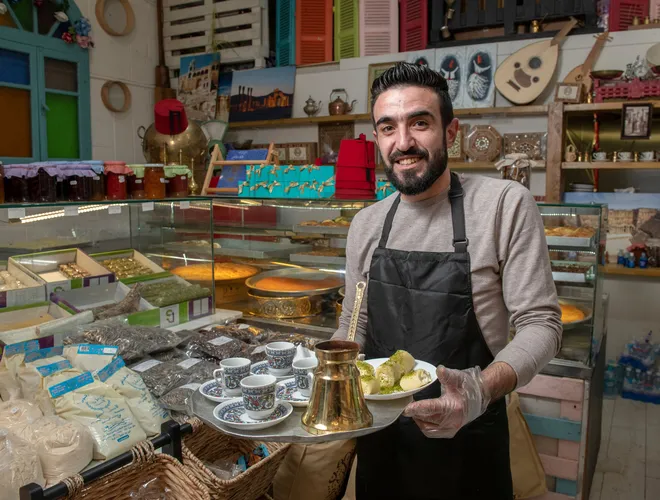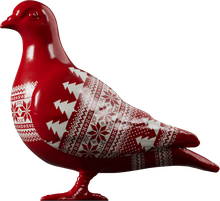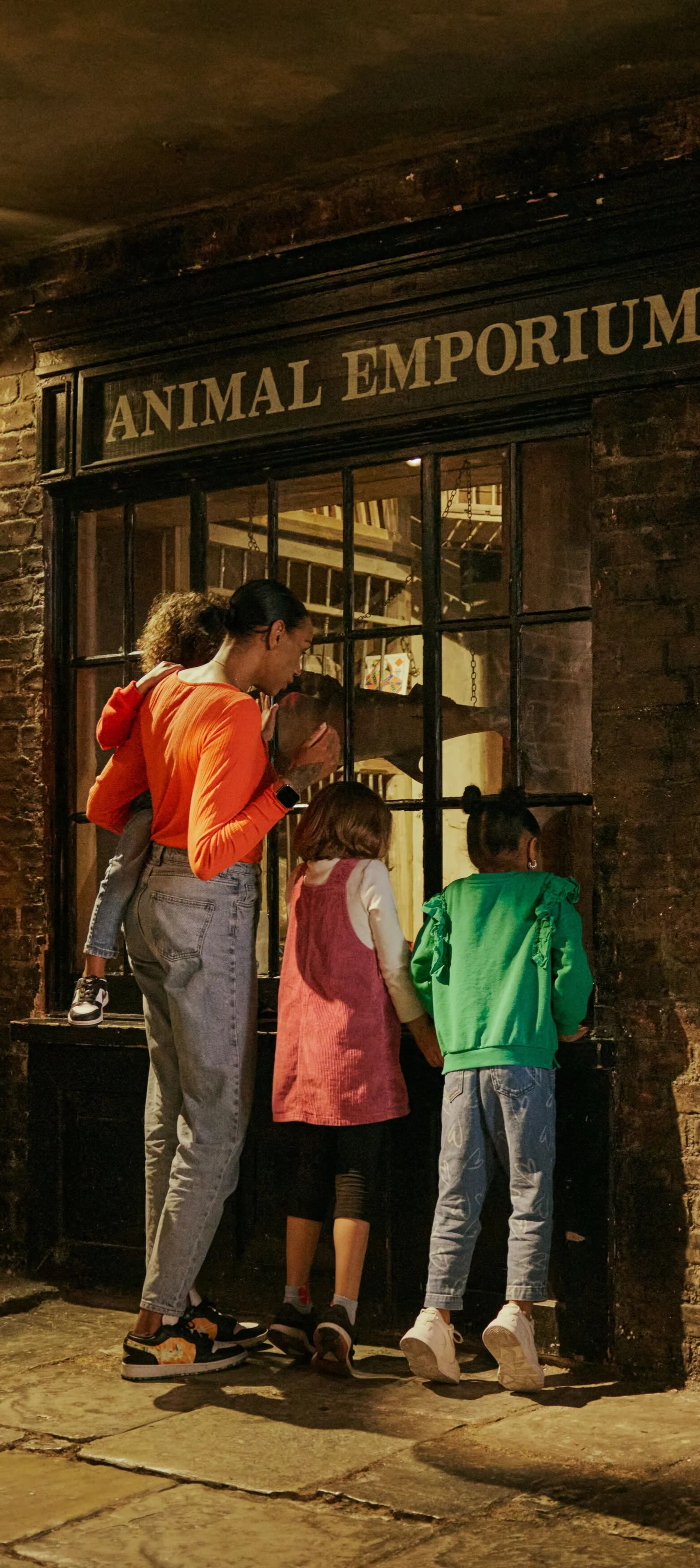Curating London
The Curating London programme collected objects and stories from diverse London communities, adding to the museum’s collection by focusing on people’s lived experiences.

'Chips and Chirpse', 2020. This photo was taken as part of 'Beauty Treatment', a micro-grant project supported as part of Collecting Ends. Beauty Treatment explores the relationship between young people, popular sportswear and inner-city environments.
Curating London was a major five-year curatorial programme (2018–2023) funded by Arts Council England that collected the breadth and depth of Londoners’ 21st-century experiences in the city. By focusing on Londoners’ lived experiences, the museum set out to broaden the collection and develop long-lasting partnerships with people.
The programme sought to address some fundamental questions around contemporary curatorship, such as issues of ethics and the varied narratives around power and knowledge. Almost 1,000 physical and digital objects were collected under Curating London. These filled important gaps in our collection, documenting the lived experiences of under-represented communities, from British-Bangladeshi youth to London’s Muslim communities, and Londoners of African and Caribbean heritage.
The research and collecting work also inspired displays and public programmes across the museum.
What is contemporary collecting?
Far-sighted museum curators have always recognised the importance of capturing the ‘now’. After all, the present is ‘history in the making’ for future generations. Contemporary collecting gives us an opportunity to document information around objects that could help inform future displays and exhibitions. This is not an opportunity we easily have with our existing collections.
One such example is the women’s work uniforms that were acquired during the First World War. If the curators of the time hadn’t collected the uniforms just then, they might have been lost, and it would have been further difficult to showcase the significant role of women workers during the First World War.
These days, a growing interest in social history has increased the focus on contemporary collecting. But to successfully do so, it’s important to truly understand popular culture and the everyday experiences of diverse communities. At the heart of that is the need to connect with people from all levels of society. Without that connection, museums simply won't be able to reflect the most important issues facing people today or represent the objects and stories that reflect them.
Our museum’s long history of inclusive collecting
Curating London was another chapter in London Museum’s consistent history of inclusive collecting and public programming. In 1993–1994, the museum held the Peopling of London exhibition – the first time a major museum covered the story of migration to London. In 2007, the London Sugar & Slavery Gallery at London Museum Docklands highlighted the city’s role in British trade in enslaved Africans. The museum also initiated ‘Collecting 2000’, which documented everyday life at the turn of the millennium, and a project around the 2012 Olympic Games to collect social media posts.
This programme was inspired by other local museum initiatives like Brent’s ‘Front Room: a Caribbean Perspective’ (1996), and the work of local history museums in Hackney, Croydon and Islington.
“Curating London intersects growing interest in academic research and practice around contemporary collecting work in museums”
Further afield, our approach took a leaf out of the Stories of the World 2012 London Olympics programme, and the Collecting Birmingham initiative (2015–2018). Elsewhere in Europe, we were inspired by the Authentic Rotterdam Heritage project.
Looking at the bigger picture, Curating London intersects growing interest in academic research and practice around contemporary collecting work in museums, with special emphasis on those holding social history collections (Rhys and Baveystock 2014). The programme also sits within a stream of museum research and practice attending to issues of diversity, (in)equality, inclusion and efforts towards democratising, decolonising and de-centring practices (Janes 2007, Sandell and Nightingale 2013, Wajid and Minott 2019).

This 'Star Trek'-themed cardboard cut-out was collected by a group of London lesbians called the 'Deep Space Dykes'.
What did Curating London achieve?
Over the five years, the programme realised its ambition in the form of the objects and stories collected, research projects as well as displays and public programmes.
In the first two years, our large, thematic collecting projects included an oral history project that explored Brexit’s impact on the city (Brexit Talks, 2018–2019) and a celebration of London’s dub and reggae cultures (Dub London, 2019–2020). Collecting local histories engaged residents to document diverse local stories and identities.
These were followed by Collecting Covid (2020–2021), which became another push to focus on community-led collecting.
These experiences shaped the approach and methodology adopted in the last two iterations of Curating London. London Eats (2021–2022) reflected upon Londoners’ relationship with food and drink, and Sports (2022–2023) celebrated Londoners’ engagement and participation in sport.
The research and collecting work also informed displays and public programmes across our sites, including Dub London: Bassline of a City (October 2020–September 2021, winner of the Engaging People Award from the Association for Heritage Interpretation); Feeding Black: Community, Power & Place (July 2021–May 2023); and Grime Stories: From the Corner to the Mainstream (June–December 2022, co-curated by Risky Roadz, a grime artist).
Through cross-departmental collaboration, Curating London developed new ways of working. This included improving recruitment practices to attract a more diverse pool of curators, and developing clearer project information and acquisition documents to make partnership work more accessible.
More in Curating London
-

Brexit Talks
Capturing Londoners’ views as the UK exited the EU through interviews and public events during 2019–2021
-

London Eats
How society, politics, economics and our disabilities influence the way Londoners connect with food
-

London's sports stories
A new and contemporary take on Londoners’ experiences of sport
-

Collecting local histories
Over two years, we conducted community collecting projects engaging residents to document diverse local stories
-

Dub London
Celebrating the vibrant dub culture in London through collaborations with reggae pioneers
-

Collecting Covid
A collecting project aimed at documenting the impact of Covid-19 on Londoners




